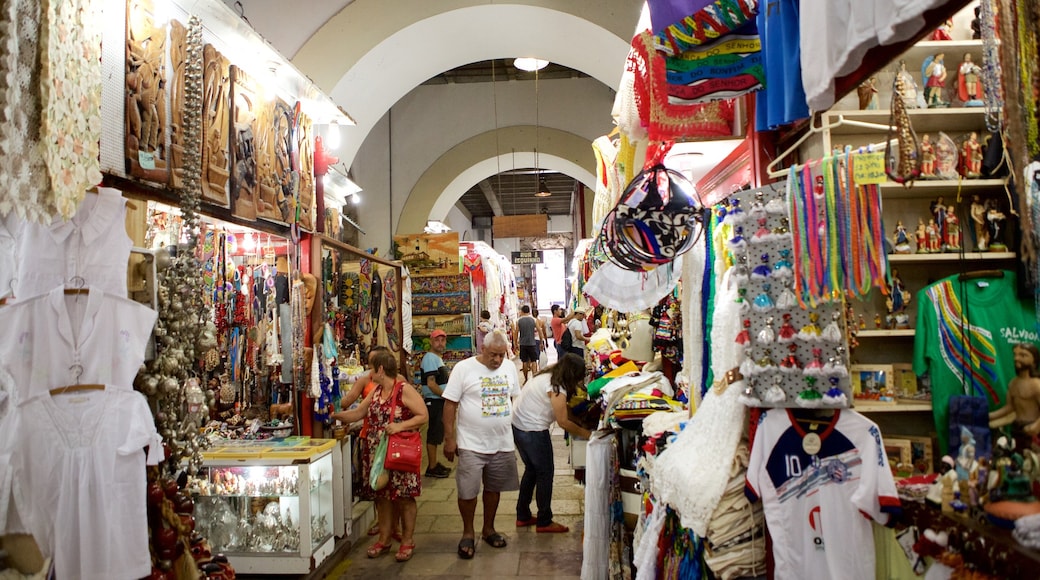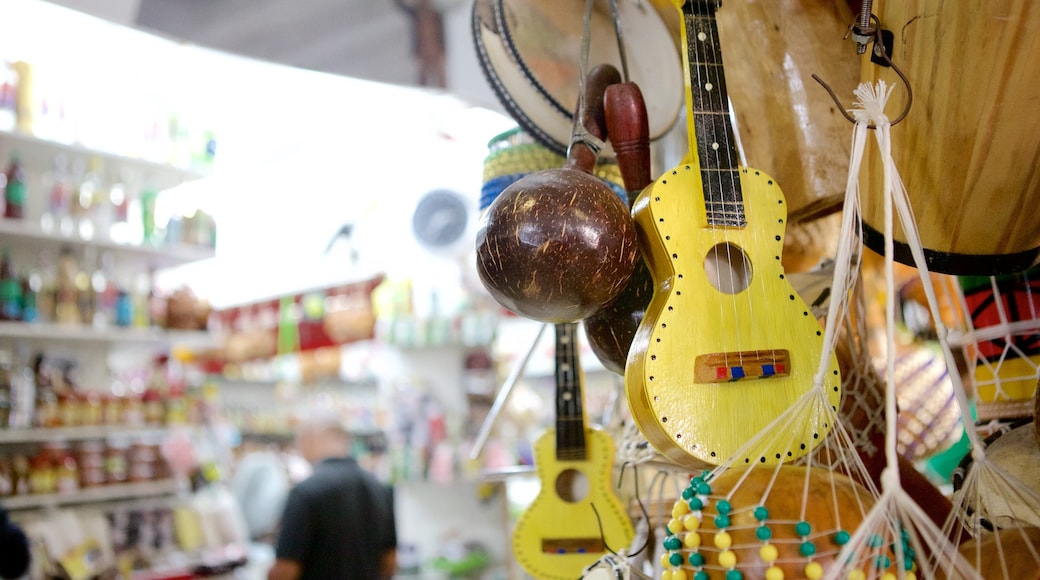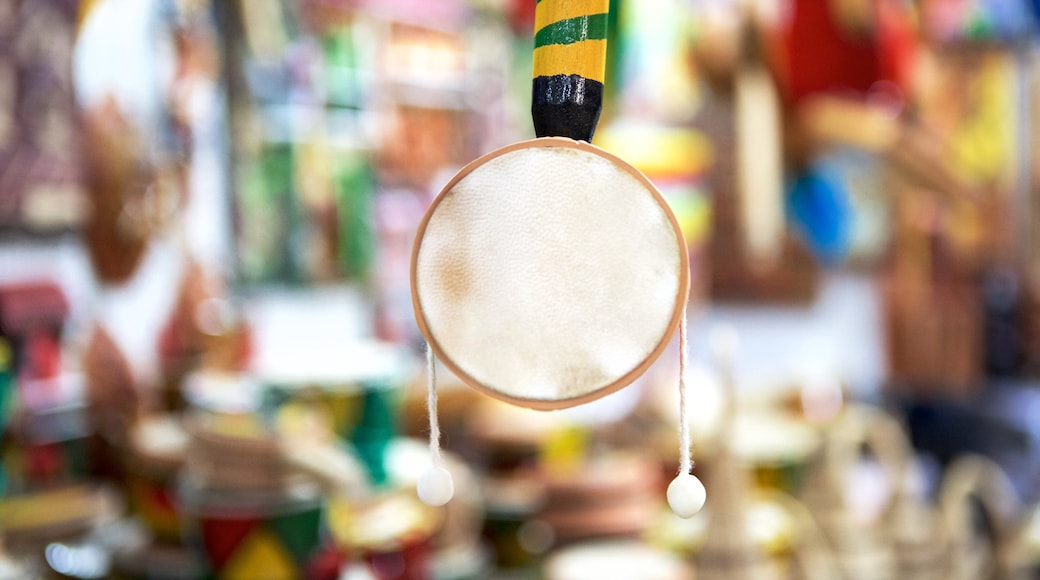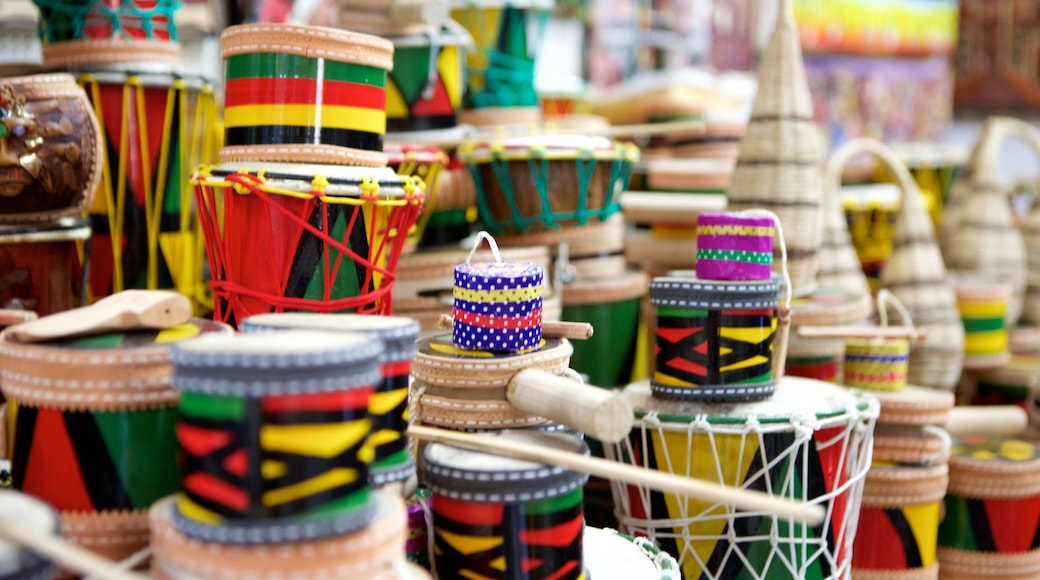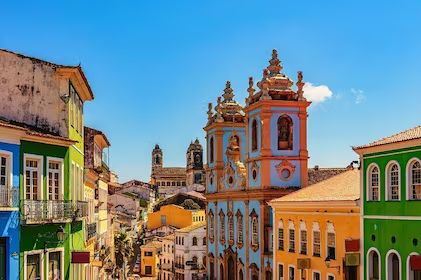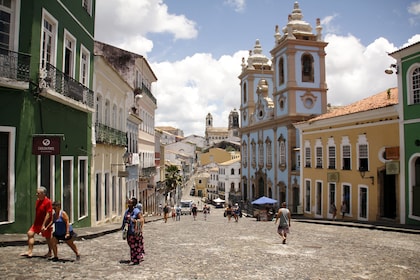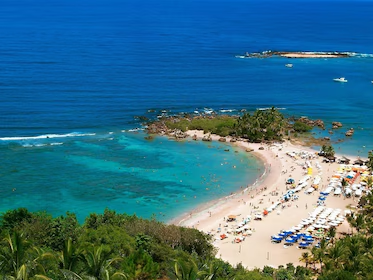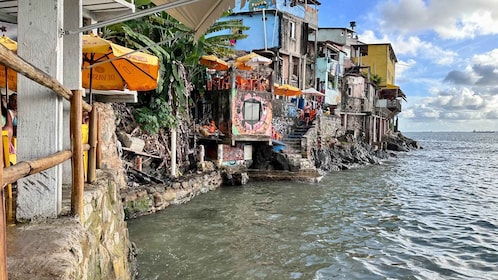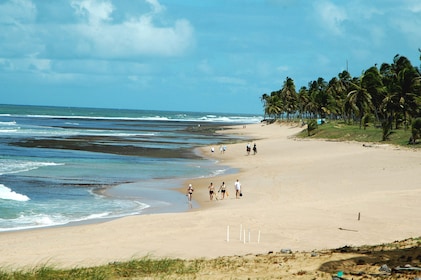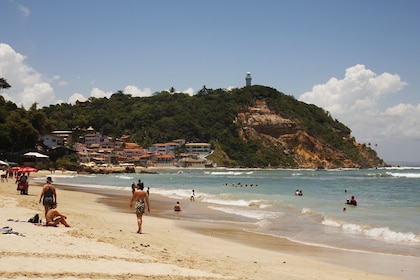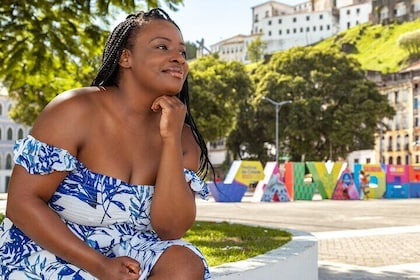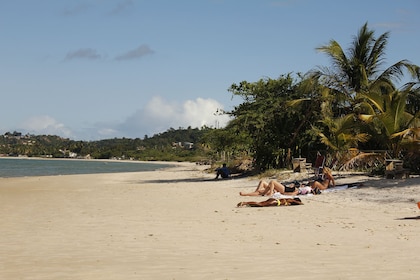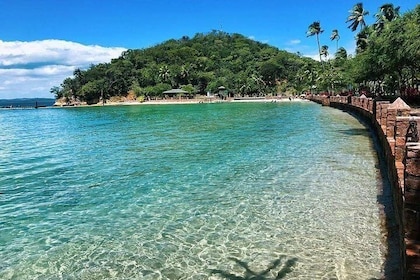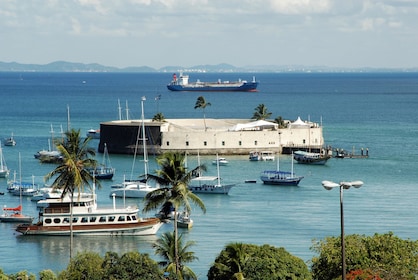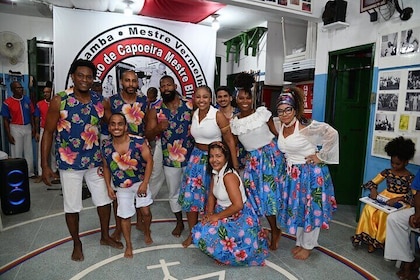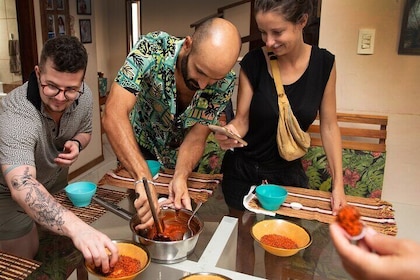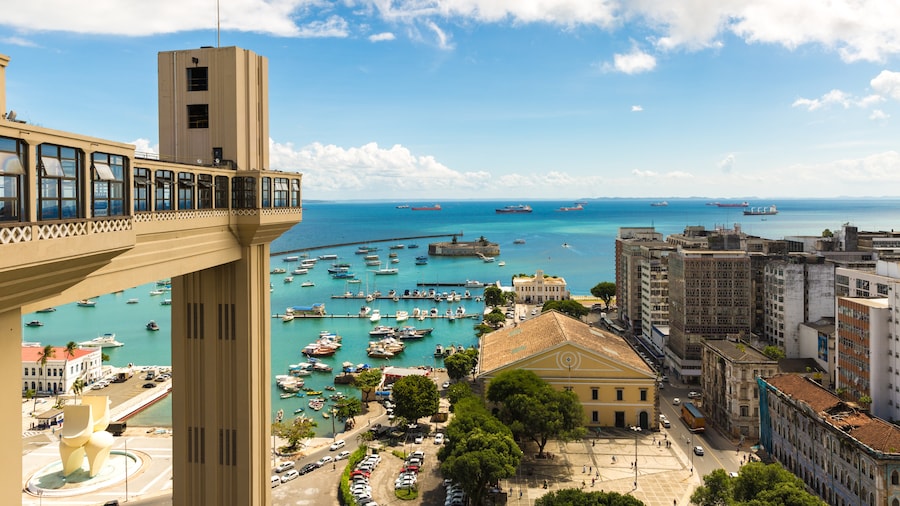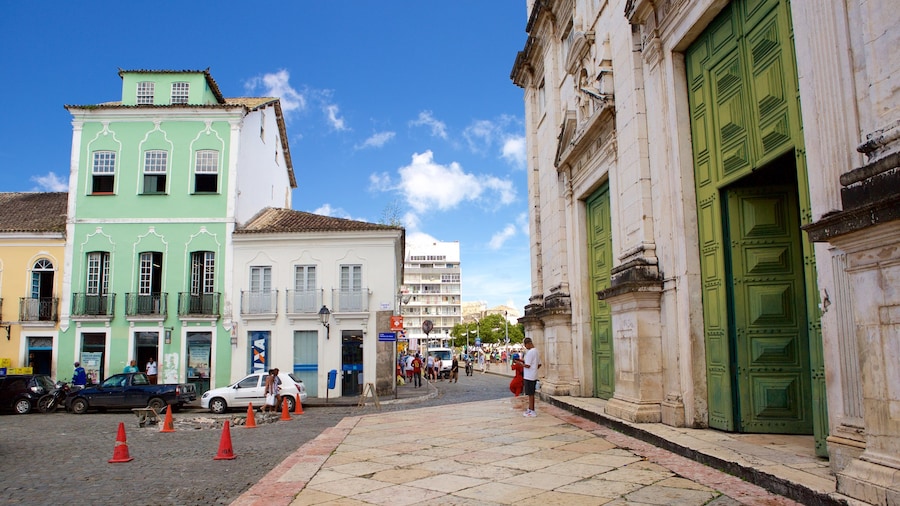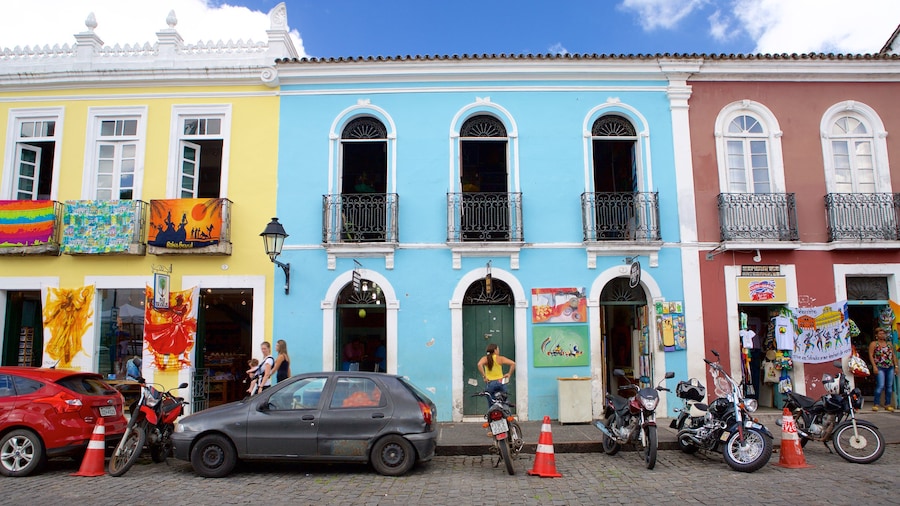Browse hundreds of handicraft and souvenir stalls and then have lunch with impressive views over the Port of Salvador at this century-old marketplace.
Visit the Mercado Modelo to see an all-encompassing collection of Bahian arts, crafts and curios. Opened in 1912, the market originally served as a center for the storing and trading of cigars, fresh produce, spirits and wines, among other goods brought to the city’s port. The Mercado Modelo is housed in Salvador’s old custom house, a heritage building inaugurated in 1868 and rebuilt several times after damage caused by fires.
Stroll around the neoclassical-style market building to find over 250 stalls. Shop for anything from beadwork, hammocks and key chains to figurines, musical instruments and tribal masks. Peruse the work of local artists, purchase handcrafted jewelry and breathe in the aromas of pickled foods and spices. Stall owners are notorious for offering high starting prices so be prepared to engage in a bargaining battle.
Besides shopping, the market is also a popular place for artistic expression. Watch as dancers practice capoeira, a non-contact martial art that combines African and Brazilian influences. Listen to the infectious sound of the berimbau (musical bow) and caxixi (maraca-like idiophone), which accompany the capoeira performers.
Be sure to go down to the market’s eerie catacombs if they are open. Legend says that this is where African slaves were kept before being sold to work on sugar plantations. The market’s security guards have reported ghostly noises that resemble rattling slave chains.
Go to the restaurants on the building’s upper floor to sample typical Bahian dishes such as moqueca, a fish or shrimp stew. Grab a seat on the balcony and enjoy views of the Port of Salvador. Look out across the bay to the 17th-century São Marcelo Fort.
Located in the Cidade Baixa neighborhood, the market is a short walk from Salvador’s Historic Center. Public buses stop nearby and link with the coastal neighborhoods of Barra and Ribeira. The Elevador Lacerda elevator connects Cidade Baixa with Cidade Alta.
The Mercado Modelo is open daily. Opening hours are shorter on Sunday and public holidays.
